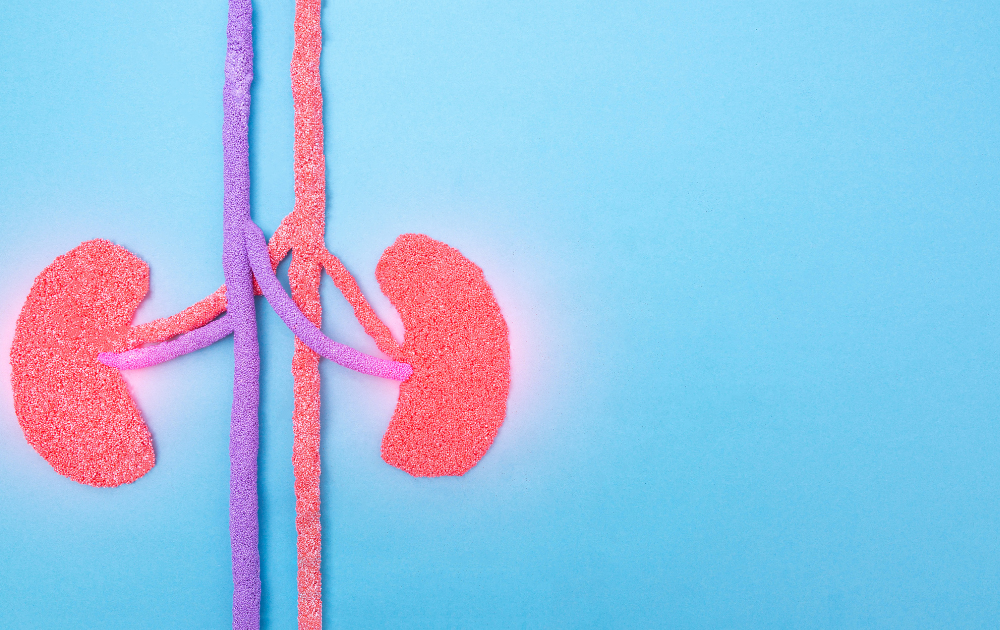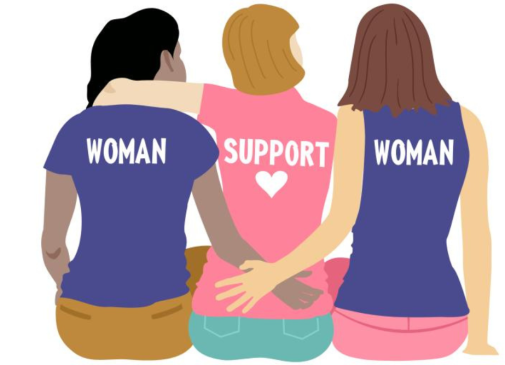
Your period has been extremely irregular for the last few months. Some months it’s so heavy you’re forced to change your super absorbent tampon every hour and others it’s almost nonexistent. Not only have you been experiencing abnormal periods, but you’ve had other symptoms like lower back pain and chills which aren’t typical during your cycle. Irregular periods often cause a bit of alarm, especially if you’re someone who is usually pretty consistent.
Thankfully, if you’ve been following our blog, you know that it’s crucial to see a doctor even if you’re “pretty sure it’s nothing”. You should always inform your physician of any changes to your period’s length, volume, and regularity. This is because your period can actually tell you a lot about your health and might even signify underlying conditions that you may not be aware of.
Why Are Your Kidneys Important?
The kidneys are our body’s main filter, cleaning close to 180 to 200 quarts of blood every day. For the average person, the kidney’s clean and produce one to two quarts of urine. Urine is created by pulling water and waste from your bloodstream. In normal circumstances, urine travels from the kidneys down to the bladder and out through the urethra.
Additionally, the kidneys control waste removal, as well as manage electrolyte, fluid, red blood cell, and blood pressure levels. Unfortunately, kidney infections and disease can cause period changes, other painful symptoms, as well as lead to life-threatening health issues.
Is Kidney Infection and Disease the Same Condition?
No, having a kidney infection and chronic kidney disease (CKD) are very different conditions. Serious infections can cause kidney disease or failure. Therefore, it’s crucial to see a doctor if you’re experiencing any symptoms.
Kidney Infections
The main cause of a kidney infection is bacteria that enters your urinary tract through the urethra. Left untreated, bacteria can multiply easily and travel to your kidneys. Usually, the infection will begin in your urethra (urinary tract infection or UTI) or bladder (bladder infection). Without medication or active treatment, UTIs and bladder infections can manifest into more serious issues negatively impacting one or both of your kidneys.
According to the American Urological Association, “about 1 in every 30 cases of UTI leads to a kidney infection”. People who are pregnant, have diabetes, weak immune systems, or uterine tumors like fibroids are at an increased risk for infection.
Kidney Disease
Kidney disease is the gradual loss of function in one or both of your organs. According to the Mayo Clinic, chronic kidney disease (CKD) affects one in ten adults in the U.S. Common causes of kidney disease include diabetes, high blood pressure, recurring kidney infections, prolonged obstruction of the urinary tract, inflammation within the kidneys, polycystic kidney disease.
Can Kidney Disease Impact Your Period?
Kidney disease can be difficult to diagnose, as your kidneys often compensate for their lack of function until it becomes serious – in the late stages. Women with kidney disease may experience abnormal, irregular periods. Some symptoms are:
- Severe bleeding lasting more than seven days
- Missed periods
- Early onset of menopause
- Irregular bleeding outside of typical menstrual cycle
If you’re at an increased risk and have noticed period changes, talk with your doctor immediately before your symptoms worsen. Your body may be trying to alert you to an underlying issue.
Other Causes of Heavy Periods
If you’ve ruled out kidney disease as a potential cause for your abnormal, irregular periods, it’s important to consider other conditions such as:
- Endometriosis
- Adenomyosis
- Pelvic inflammatory disease
- Medications such as birth control or anticoagulants
- Polycystic ovarian syndrome (PCOS)
- Menopause
- Other hormone imbalances
- Pregnancy
- Uterine fibroids
It’s crucial that you track any changes to your period’s regularity, volume, and length. This will make it easier to describe what you’ve been experiencing to your doctor. If you’ve been experiencing heavy periods, fatigue, pelvic pain, bloating, constipation, frequent urination, pain during sex, an enlarged abdomen, or other symptoms, then you may want to consult a specialist about the prevalence of fibroids.
Want to try out our new period tracker? Click here to check your period’s length and regularity.
Uterine fibroids are benign tumors that develop within the uterus. Depending on their size and location, fibroids can impact other organs like the bladder, rectum, intestines, and kidneys.
Can Fibroids Cause Kidney Issues?
Yes, uterine fibroids can cause kidney issues. If a fibroid grows large enough within or outside the uterus, it could potentially impact the ureter, the tube that connects the kidney and the bladder. Consequently, if the flow of urine is backed up because of the fibroid pressing on the ureter tube, the back-pressure can cause the kidney to swell. Kidney swelling is referred to as hydronephrosis. If urine cannot escape the ureter at a normal pace, bacteria and other contaminants can cause kidney or bladder infections. It’s important to monitor how often you are urinating throughout the day and how much you are expelling each time.
Hydronephrosis is often associated with painful urination, an increased urge to urinate, abdominal pain or swelling, as well as back and side pain. In severe cases that are left untreated, hydronephrosis can lead to permanent kidney damage.
Treatment for Kidney Issues Caused by Fibroids
As you can see, treating fibroids is not only crucial for your period health, but also other organs such as your kidneys. Living with fibroids can be exhausting and frustrating. Unfortunately, many women find themselves limited by their symptoms, especially in public. Pelvic pain and heavy bleeding is often so severe that it impacts their social, work, and relationships. If you’ve noticed significant period changes, we urge women to see a specialist to see if fibroids could be the cause.
At the Fibroid Fighters Foundation, we provide women with the information they need to make an informed decision about their health. There are numerous types of fibroid treatment available including surgical and non-surgical. Uterine fibroid embolization (UFE) is a non-surgical, outpatient solution that preserves the uterus and fertility. UFE can be used to reduce the size of fibroids that may be impacting other organs like the bladder and kidneys. Additionally, non-surgical treatments like UFE can lighten your period’s length and volume.
If you want to learn more about fibroid treatment or just have questions about an abnormal period, give us a call at 855.455.5262. You can also feel free to conveniently contact us online.







